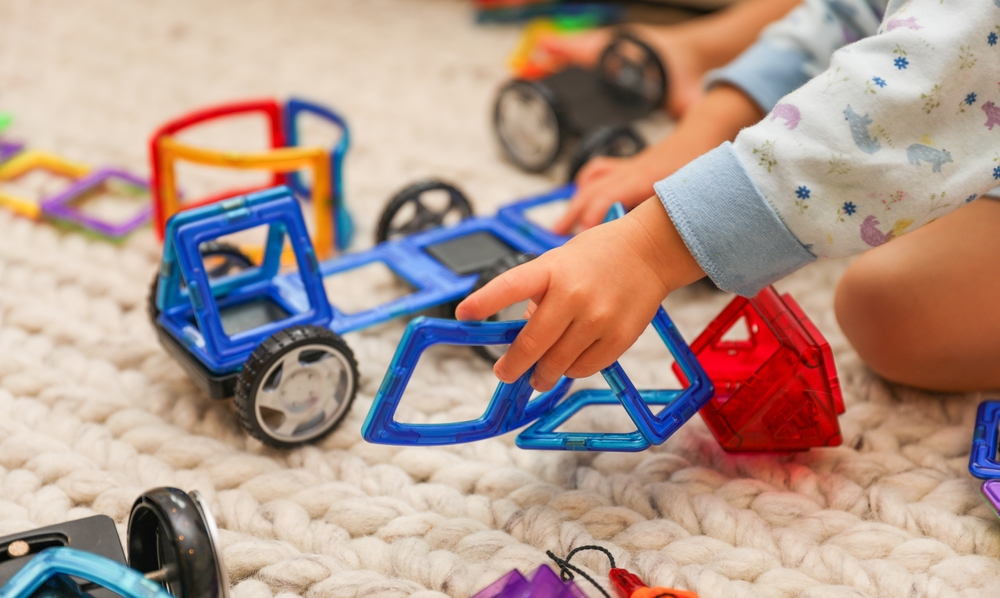Incorporating STEM Education into Early Childhood Curriculum

STEM education has gained significant recognition in recent years as an essential aspect of childhood learning. By integrating Science, Technology, Engineering, and Mathematics into the early childhood curriculum, educators can help young learners develop critical thinking, creativity, and problem-solving skills that are necessary for future academic and professional success. A child educational center that prioritizes STEM education fosters curiosity and encourages young minds to explore the world through hands-on experiences and inquiry-based learning. The implementation of STEM concepts at an early age ensures that children build a strong foundation in these subjects, which enhances their ability to adapt to an increasingly technological world.
The Importance of STEM Education in Early Childhood
The early years of a child’s life are crucial for cognitive development, and introducing STEM education during this period can significantly impact their growth. When children are exposed to STEM activities, they develop analytical thinking skills that help them understand cause-and-effect relationships, identify patterns, and improve logical reasoning. These skills are essential for academic success in various subjects, not just science and mathematics.
A well-structured STEM program at a child educational center provides an engaging environment where children can explore new concepts through play. Play-based learning helps young learners grasp complex ideas in a way that is enjoyable and meaningful. Through activities like building structures with blocks, conducting simple experiments, or engaging in coding exercises, children develop confidence in their ability to solve problems independently. Additionally, STEM education promotes collaboration, as many activities require teamwork, fostering essential social skills that benefit children throughout their lives.
How to Integrate STEM Education in Early Childhood Curriculum
Incorporating STEM education into early childhood curriculum requires a strategic approach that aligns with young learners’ developmental stages. Teachers and caregivers should create lesson plans that seamlessly integrate STEM concepts into everyday activities while ensuring that they are age-appropriate. One effective way to introduce STEM education is through storytelling. By using stories that incorporate scientific concepts or problem-solving scenarios, educators can engage children in discussions that encourage them to think critically.
Hands-on experiments are another effective method of integrating STEM into early childhood learning. Simple activities, such as making a baking soda and vinegar volcano or observing plant growth, allow children to experience scientific principles in action. Additionally, incorporating technology into learning, such as using interactive apps or simple coding programs, helps children develop an understanding of computational thinking. Engineering concepts can be introduced through building activities that involve designing and constructing structures using various materials, fostering creativity and spatial awareness.
Mathematics, an integral part of STEM, can be seamlessly integrated into daily routines. Counting games, measuring ingredients during cooking activities, or recognizing shapes in the environment help children develop early math skills in a practical and enjoyable manner. By creating an immersive STEM-focused environment, educators ensure that children develop a natural curiosity and enthusiasm for these subjects.
The Role of Educators and Parents in STEM Learning
Educators play a fundamental role in shaping children’s interest in STEM subjects by creating a positive and supportive learning environment. Teachers should receive training on STEM methodologies to effectively incorporate them into their lesson plans. A child educational center that prioritizes professional development for educators ensures that they have the necessary knowledge and skills to foster a stimulating learning experience for young children.
Parents also play a crucial role in reinforcing STEM concepts outside the classroom. Engaging in STEM-related activities at home, such as conducting simple experiments, exploring nature, or playing educational games, helps children develop a deeper understanding of these subjects. Encouraging children to ask questions and explore their surroundings nurtures their natural curiosity and enhances their ability to think critically. Collaborative efforts between educators and parents create a comprehensive learning environment that supports children’s overall development in STEM disciplines.
The Future Impact of Early STEM Education
Integrating STEM education into early childhood curriculum has a long-term impact on children’s academic and professional futures. Early exposure to STEM concepts helps children develop a growth mindset, allowing them to approach challenges with confidence and resilience. As technology continues to advance, individuals with strong STEM skills will be better equipped to adapt to the evolving job market and contribute to various industries.
A child educational center that prioritizes STEM education helps bridge the gap between traditional learning and the skills required for the modern workforce. By nurturing young minds through engaging STEM activities, educators prepare children for future academic achievements and careers in science, technology, engineering, and mathematics. Furthermore, early STEM education promotes diversity in these fields by encouraging all children, regardless of gender or background, to explore and excel in STEM disciplines.
Conclusion
The incorporation of STEM education into early childhood curriculum is essential for fostering a generation of innovative thinkers and problem solvers. By providing children with opportunities to explore, experiment, and engage in hands-on learning experiences, educators and parents can cultivate a lifelong passion for STEM subjects. A well-structured STEM program at a child educational center not only enhances children’s cognitive abilities but also prepares them for a future filled with opportunities in an increasingly technological world.
Need a Child Educational Center in Greenwood, IN?
Established in 2017, we here at Kids Kingdom Early Learning Center are a child care and learning center located in Greenwood, Indiana. We specialize in providing a variety of services including daily nondenominational Christian education, before care and aftercare services, Paths to QUALITY™ Level 3 provider, On My Way Pre-K Provider, director-led weekly Bible learning time, military discounts, available through NACCRRA, Kindergarten readiness, CCDF provider, and more for children from newborn to 6 years old. As a family-owned and operated business, we value providing Christian education and quality services. Contact us for more information or come visit us today!

